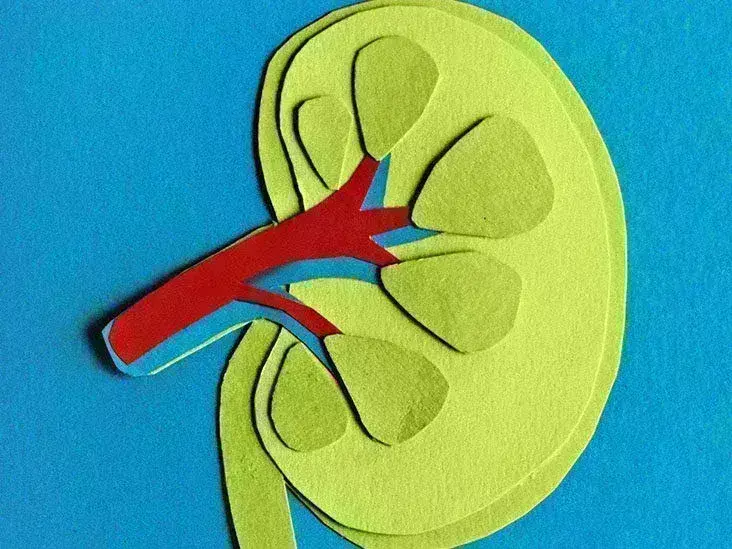- Home
- Medical news & Guidelines
- Anesthesiology
- Cardiology and CTVS
- Critical Care
- Dentistry
- Dermatology
- Diabetes and Endocrinology
- ENT
- Gastroenterology
- Medicine
- Nephrology
- Neurology
- Obstretics-Gynaecology
- Oncology
- Ophthalmology
- Orthopaedics
- Pediatrics-Neonatology
- Psychiatry
- Pulmonology
- Radiology
- Surgery
- Urology
- Laboratory Medicine
- Diet
- Nursing
- Paramedical
- Physiotherapy
- Health news
- Fact Check
- Bone Health Fact Check
- Brain Health Fact Check
- Cancer Related Fact Check
- Child Care Fact Check
- Dental and oral health fact check
- Diabetes and metabolic health fact check
- Diet and Nutrition Fact Check
- Eye and ENT Care Fact Check
- Fitness fact check
- Gut health fact check
- Heart health fact check
- Kidney health fact check
- Medical education fact check
- Men's health fact check
- Respiratory fact check
- Skin and hair care fact check
- Vaccine and Immunization fact check
- Women's health fact check
- AYUSH
- State News
- Andaman and Nicobar Islands
- Andhra Pradesh
- Arunachal Pradesh
- Assam
- Bihar
- Chandigarh
- Chattisgarh
- Dadra and Nagar Haveli
- Daman and Diu
- Delhi
- Goa
- Gujarat
- Haryana
- Himachal Pradesh
- Jammu & Kashmir
- Jharkhand
- Karnataka
- Kerala
- Ladakh
- Lakshadweep
- Madhya Pradesh
- Maharashtra
- Manipur
- Meghalaya
- Mizoram
- Nagaland
- Odisha
- Puducherry
- Punjab
- Rajasthan
- Sikkim
- Tamil Nadu
- Telangana
- Tripura
- Uttar Pradesh
- Uttrakhand
- West Bengal
- Medical Education
- Industry
Glutamate Infusion Reduces Kidney Injury After Cardiac Surgery: JAMA

A recent study published in the Journal of American Medical Association unveiled promising results regarding the prevention of acute kidney injury (AKI) following cardiac surgery. This study explored the potential benefits of utilizing glutamate infusion during coronary artery bypass graft (CABG) procedures.
Acute kidney injury (AKI) is a serious complication associated with cardiac surgery that contributes to increased morbidity and mortality rates among patients. Despite numerous attempts to reduce this risk, success rate has been limited. Thereby, GLUTAMICS (Glutamate for Metabolic Intervention in Coronary Surgery) study pooled data from two prospective, randomized, double-blind multicenter trials and was conducted across five cardiac surgery centers in Sweden. The trials spanned from 2005 to 2020 and included a total of 791 patients without diabetes who were undergoing CABG surgery.
During the procedure, patients received either intravenous infusion of l-glutamic acid or saline. The results found that patients who received glutamate infusion expressed a significantly lower risk of AKI with a relative risk reduction of 51% when compared to the control group. Also, the need for dialysis post-surgery was significantly lower in the glutamate group.
The study emphasized the importance of these findings by highlighting that glutamate infusion represents a potentially transformative approach to AKI prevention in cardiac surgery patients. While further research is mandated to validate these results, the positive implications for patient care are profound from this research.
Globally, cardiac surgeons and medical professionals are optimistic about the implications of this study. If confirmed in future trials, glutamate infusion could become a standard intervention for patients against AKI during CABG procedures which ultimately improve the patient outcomes and reduce healthcare burdens.
Source:
Holm, J., Vanky, F., & Svedjeholm, R. (2024). Association of Glutamate Infusion With Risk of Acute Kidney Injury After Coronary Artery Bypass Surgery. In JAMA Network Open (Vol. 7, Issue 1, p. e2351743). American Medical Association (AMA). https://doi.org/10.1001/jamanetworkopen.2023.51743
Neuroscience Masters graduate
Jacinthlyn Sylvia, a Neuroscience Master's graduate from Chennai has worked extensively in deciphering the neurobiology of cognition and motor control in aging. She also has spread-out exposure to Neurosurgery from her Bachelor’s. She is currently involved in active Neuro-Oncology research. She is an upcoming neuroscientist with a fiery passion for writing. Her news cover at Medical Dialogues feature recent discoveries and updates from the healthcare and biomedical research fields. She can be reached at editorial@medicaldialogues.in
Dr Kamal Kant Kohli-MBBS, DTCD- a chest specialist with more than 30 years of practice and a flair for writing clinical articles, Dr Kamal Kant Kohli joined Medical Dialogues as a Chief Editor of Medical News. Besides writing articles, as an editor, he proofreads and verifies all the medical content published on Medical Dialogues including those coming from journals, studies,medical conferences,guidelines etc. Email: drkohli@medicaldialogues.in. Contact no. 011-43720751


